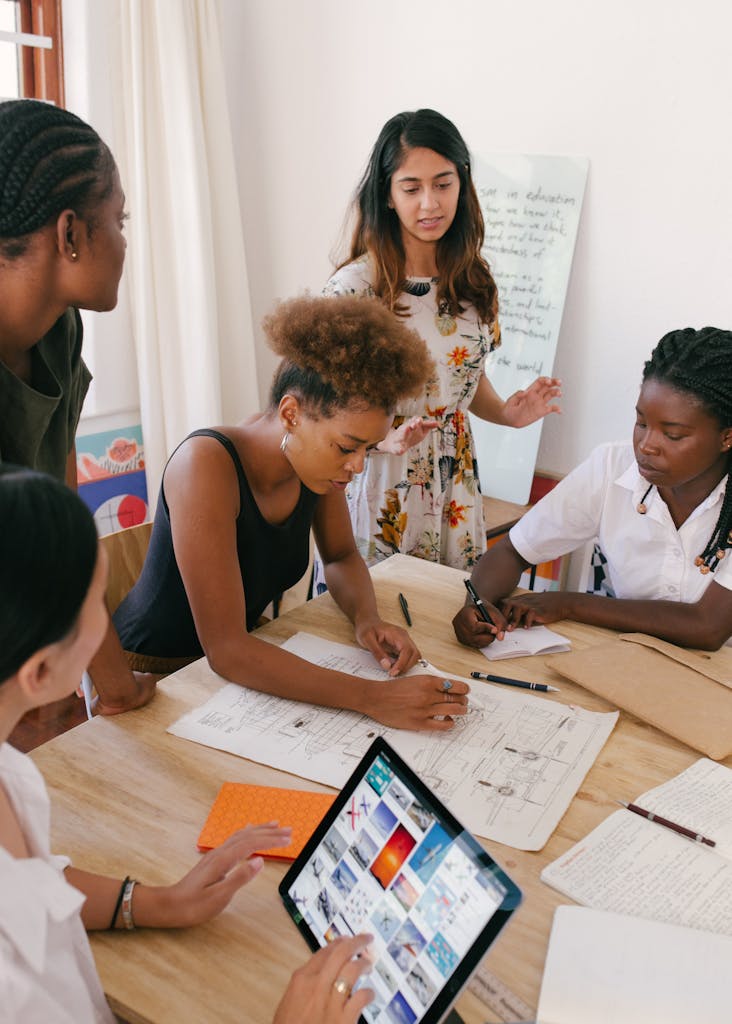Build Trust. Decide Faster. Win Together.
Teamwork isn’t automatic—it’s a shift. When people bring together their skills, strengths, and small daily actions toward one goal, ordinary groups create extraordinary results. That’s what happens when Bayanihan shows up at work.
And you can spot when teamwork is missing.
- Misunderstandings pile up.
- Trust is thin.
- Energy is low.
- Conflicts never close.
- Goals keep slipping.
The good news? Teamwork can be built—and sustained.
This Teamwork Shift Playbook is for managers, supervisors, and facilitators who want to turn busy teams into aligned teams, one shift at a time.

The Definitions of Teamwork
To understand how to build effective teams, let’s first explore the definition of teamwork from various perspectives:
- According to the Business Dictionary, “teamwork is the process of working collaboratively with a group of people, in order to achieve a goal.”
- Merriam-Webster defines it as “work done by several associates with each doing a part but all subordinating personal prominence to the efficiency of the whole.”
- The Cambridge Dictionary states that teamwork is “the ability of a group of people to work well together.”
- Lastly, Investopedia describes teamwork as “a cooperative process that allows ordinary people to achieve extraordinary results.”

What Teamwork Is
Teamwork is a selfless act of working together toward a common goal or objective, where each team member sets aside their personal gains for the benefit of the team. For instance, the Filipino concept of ‘Bayanihan’ epitomizes this spirit of collective unity and effort, where community members come together to help a neighbor move their house to a new location. The physical act of lifting and moving a house together symbolizes the essence of teamwork – individuals coming together to achieve something that would be impossible to do alone.
We need to develop teamwork.
Teamwork does not come naturally to most of us. In a competitive world, everyone seems to be the enemy. In the workplace, people compete for budget, promotions, and recognition.
Putting high-performing professionals together sometimes produces champion teams. But teams often need deliberate effort to build relationships and develop teamwork skills and commitment.
Teamwork multiplies result.
Teamwork makes the whole bigger than the sum of all of its parts. Teamwork makes 1 plus 1 equal 3. Synergy is what happens when people have teamwork. Individually, they cannot do much. But together, they can move mountains.
A common assumption is that teamwork is good – and everyone will naturally do it.
Teamwork is not natural to most of us. In schools, we were brought up to be the best that we could be as individuals. Everyone is our competition. We are rewarded according to our individual achievements.
At work, we get promoted individually too. We did not join organizations as teams. We applied as individuals. We work on promotion as individuals.

Cultivating the Teamwork Spirit
Teamwork spirit is the collective mindset and attitude of a group of individuals who work together towards a common goal. It involves a shared commitment to the team’s success, a willingness to support and collaborate with one another, and a sense of accountability and responsibility for achieving the team’s objectives.
A strong teamwork spirit is characterized by trust, respect, open communication, and a positive attitude. It enables team members to overcome challenges, solve problems, and achieve better results together than they could individually.

Why is teamwork important?
In a VUCA world, teamwork is no longer just a desirable attribute – it’s a necessity. Its importance cannot be understated.
Teamwork is the magic that moves organizations from the realm of mediocrity to the heights of excellence. It is the catalyst that turns vision into reality and dreams into tangible achievements.
At the heart of teamwork is the power to improve productivity and performance.
When individuals work in unison, they cultivate a deeper level of understanding and camaraderie. This harmony fuels a rhythm of productivity that far surpasses what any individual could achieve alone.
Team members can lean on each other’s strengths, compensate for each other’s weaknesses, and work cohesively towards common goals. This synergy results in a collective output that is greater than the sum of its parts, propelling the team’s performance to unparalleled heights.
Teamwork is the fertile ground from which exceptional customer experiences bloom.
When team members work collaboratively, they collectively commit to going the extra mile to exceed customer expectations. They leverage their shared knowledge, creativity, and passion to create ‘wow’ experiences that differentiate the organization in the marketplace.
It’s the collective dedication of the team that leaves a lasting impression on customers, leading to increased customer loyalty and business growth.
Furthermore, teamwork is the catalyst for innovation and risk-taking.
In an environment of trust and collaboration, team members feel more comfortable venturing out of their comfort zones. They are more likely to propose novel ideas, take risks, and push the boundaries of what is possible.
This culture of innovation is the lifeblood of a progressive organization, driving its evolution and growth.
In a world characterized by volatility, uncertainty, complexity, and ambiguity, teamwork equips organizations with the agility and adaptability they need to thrive.
When faced with challenges, a united team can pivot quickly, respond to change, and seize new opportunities. The collective intelligence and diverse perspectives within a team enable it to navigate complex situations with dexterity and resilience.
Embrace teamwork wholeheartedly. Celebrate the power of ‘we’ over ‘I’. Remember that together, we can scale mountains that seem insurmountable, cross valleys that appear unreachable, and create a future that seems unimaginable.
For it is in the spirit of teamwork that we unlock our collective potential and unleash the extraordinary power of our organization.
Remember, teamwork is not just about working together; it’s about rising together. It’s about recognizing that we are not just a collection of individuals, but a team – stronger together, braver together, and unstoppable together.
There is synergy when there is teamwork. Each member of the team becomes a multiplier.
Working As A Team
Allow me to give you eight more reasons why professionals must work as a team. You must have heard or experienced some of them.
Share these with your team members who doubt that you, too, can benefit from teamwork. It often results in exceptional outcomes, and it is a pity that we still need to do team-building workshops for them to embrace it.
Teamwork enhances problem-solving skills. When individuals come together to solve a problem, they create a collective intelligence than surpasses any individual’s ability to solve problems.
We can brainstorm ideas, evaluate the best possible solutions, and navigate complex issues more efficiently.
Teamwork helps us become more adaptive. Adaptability is essential in a VUCA world. When we work together, we can quickly adapt and respond to evolving circumstances. We can bring our unique skills and knowledge to the team.
When we work together, we become a dynamic and flexible team capable of navigating many uncertainties. We don’t have to worry about unnecessary conflict because we keep our eyes on the common agenda.
Teamwork still a sense of shared responsibility. We become more accountable and committed to our results. A sense of ownership motivates each team member to remain committed to the team’s goals.
When everyone actively contributes, our team can maintain momentum and drive toward our goals with determination.

Teamwork fosters strong social bonds among members. It creates an environment of trust, respect, and open communication. These authentic connections enable individuals to express their ideas, voice concerns, and collaborate effectively without fear of judgment or reprisal.
A team with strong social bonds can capitalize on the diverse strengths of its members and work harmoniously toward their objectives.
Teamwork is a force multiplier. When individuals come together and work as a team, their combined efforts create a synergy that amplifies their strengths.
This collective energy allows the group to achieve far more than any member could have accomplished alone. Essentially, the whole becomes more significant than the sum of its parts, enabling teams to tackle complex challenges and achieve ambitious goals.
Teamwork brings a wealth of perspectives. A diverse team brings together people with different backgrounds, experiences, and skill sets.
This rich tapestry of perspectives enables the group to consider problems from multiple angles, fostering creativity and innovation.
Diverse teams are better equipped to anticipate and adapt to environmental changes, ensuring they remain resilient in the face of adversity.
Teamwork helps us become stronger. In a team, members support and rely on one another. This interdependence fosters a sense of camaraderie and unity.
We understand that our success is intimately tied to the group’s success. Therefore, when challenges arise, team members can lean on one another for guidance, encouragement, and assistance, ensuring that the group stays on course and remains motivated to persevere.
Teamwork offers an invaluable opportunity for personal and professional growth. By working closely with others, we can learn from our teammates’ experiences, knowledge, and skills while also sharing their expertise.
This exchange of ideas strengthens the team’s collective wisdom and enables individuals to enhance their capabilities, leading to a continuous cycle of improvement and success.

10 Core Principles of Teamwork
Teamwork is a crucial part of our everyday lives, both professionally and personally. Effective teamwork can lead to better results, improved relationships, and increased satisfaction for everyone involved.
But what are the core principles that make teamwork successful? Let’s take a closer look at these essential elements.
1. Keep communication clear.
Good communication is the foundation of any successful team.
It is important for team members to express their thoughts, ideas, and concerns openly. This allows for better understanding and helps avoid misunderstandings.
Keep communication channels open and be respectful when sharing your thoughts.
2. Promote shared goals.
Having a common goal unites team members and keeps them focused.
When everyone is working towards the same objective, it’s easier to stay motivated and committed.
Make sure all team members understand the team’s goals and their role in achieving them.
3. Trust each other.
Trust is a vital part of teamwork. When team members trust each other, they feel more comfortable sharing ideas and taking risks.
This leads to better collaboration and innovation. Building trust takes time, but it starts with being honest, reliable, and supportive.
4. Always encourage collaboration.
Working together is the essence of teamwork.
Encourage collaboration by sharing ideas, resources, and skills. Team members should feel comfortable asking for help or offering assistance when needed.
Remember, a team is stronger when everyone works together.
5. Adapt to changes.
Things don’t always go as planned. Successful teams can adapt to changes and find new ways to achieve their goals.
Be open to new ideas and approaches, and be willing to adjust your plans when necessary.
Embrace change and learn from it.
6. Resolve conflict at once.
Conflict is a natural part of teamwork. However, it’s important to address and resolve conflicts quickly and effectively.
Ignoring conflicts can lead to resentment and decreased productivity.
Encourage open communication and listen to all sides of the issue. Then, work together to find a solution.
7. Recognize strengths and weaknesses.
Every team member has unique strengths and weaknesses. Acknowledging these differences can help the team work more efficiently.
Assign tasks based on individual strengths, and offer support when needed. This way, the team can achieve more together.
8. Make yourself accountable.
Being responsible for your actions is essential in teamwork. When team members hold themselves and each other accountable, it creates a sense of responsibility and trust.
Admit your mistakes, learn from them, and strive to do better.
9. Support each other.
A supportive environment can make all the difference in a team’s success.
Offer encouragement and help to your teammates when needed.
Celebrate successes and acknowledge hard work.
This positive atmosphere can boost morale and improve overall performance.
10. Keep learning.
Successful teams are always looking for ways to improve.
Encourage ongoing learning and skill development.
Share knowledge and experiences with your teammates. This will not only help the team grow but also foster a culture of continuous improvement.
The Role of Supervisors in Teamwork
It has been typical for managers and supervisors not to join team-building events. They leave all the designing and planning of the programs to the facilitators.
But this is not right. So, I work only with managers who give attention to building teams. Others who think that team building is nothing but playing games can find a friendly facilitator.
Supervisors and managers play a critical role in building and fostering teamwork. The way they behave is the definition of teamwork for many employees.
They are the architects who build the foundation of teamwork. And they are torchbearers who guide teams toward their goals.
The first step in building teamwork is creating an environment that encourages collaboration and mutual respect. As a supervisor or manager, your leadership sets the tone for the team’s culture.
By modeling values such as trust, transparency, and inclusivity, you can foster a safe space where team members feel comfortable sharing their ideas, taking risks, and learning from their mistakes. This nurturing environment serves as fertile ground for teamwork to thrive.
Furthermore, supervisors and managers have the critical responsibility of aligning individual goals with team and organizational objectives. By clearly communicating expectations and ensuring a shared understanding of the team’s purpose, you can inspire your team members to work collaboratively towards a common goal.
This alignment not only enhances productivity but also fosters a sense of unity and belonging within the team.
In addition, conflict resolution is another vital aspect of a supervisor or manager’s role in promoting teamwork. Conflicts, if not managed well, can disrupt team harmony and impact productivity.
As a leader, your ability to identify, address, and resolve conflicts in a fair and transparent manner can help maintain team cohesion and trust.
Finally, supervisors and managers play a pivotal role in recognizing and rewarding teamwork.
By acknowledging collective efforts and celebrating team achievements, you can reinforce the importance of teamwork and boost team morale. Recognition not only validates the team’s hard work but also motivates them to continue collaborating and striving for excellence.
Your role in building teamwork is multi-dimensional and vital. From fostering a collaborative culture and aligning goals to managing conflicts and recognizing team efforts, every aspect of your leadership contributes to the growth and success of your team.
Remember, the strength of the team lies not in the number of individuals, but in the unity and harmony fostered by effective leadership.
The I in Teamwork
“There is no I in teamwork.” You must have heard of this hogwash before.
The intention is to promote teamwork. Unfortunately, good intention is not enough. To encourage teamwork, some team building facilitators forced the I to disappear.
You cannot find the letter i in the spelling, but ” I ” is in teamwork.
That I is the individual who assumes personal accountability.
The next time you hold your team building workshop, observe how people construct their sentences when asked about the challenges in the organization.
You will hear the following:
“We should communicate better.”
“Some of us do not care”.
“We do not know our goals”
“We do not know who is responsible for training us.”
“You should commit yourself to the team”.
Sentences that start with You, They, and We are safe and vague.
There is I in teamwork. There is no teamwork without individual accountability.
When every member of your team has a sense of personal accountability, you will hear them say:
“I was not clear. I will communicate better starting today.”
“I have not shown that I care. I will find ways to show that I really care.”
“I do not know our goals. I will seek your help to make it clear to me today.”
“I will find people who can train me. I will educate myself.”
“I will commit myself to the team starting today.”
I encourage teams to talk using the first-person point of view. Instead of saying, “The problem in this team is that we do not communicate. If you are a team member, you should become open and honest with fellow team members.”
I encouraged them to say,” I think that the problem is that I cannot communicate well with you. But, as a member of the team, I have to be open and honest with you.”
Effective team building encourages you to add value to the life of others.
During debriefing sessions, participants tend to give motherhood statements that are safer because no one, in particular, is held accountable.
Change begins with the individual, but we keep listening to people that there is no I in the team. Wrong.
The best teams help individuals achieve their individual goals while achieving team goals. To highlight the importance of the role of each individual, we must recognize the I in teams.
Team Building Articles
Are you looking for more ideas to build teamwork? The following articles may help you.
No posts
FAQs
If you’re building a business and you are playing to win…
Let’s install one shift that moves metrics.
→ Shift Experiences


